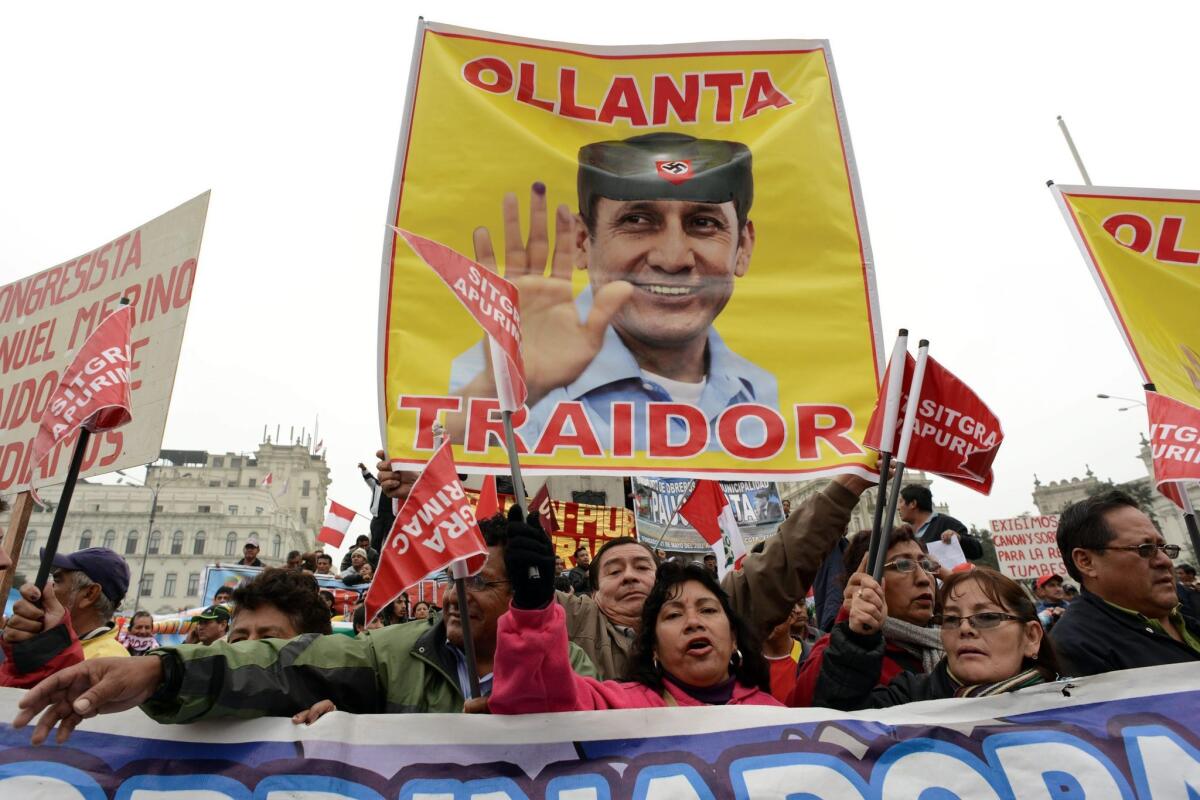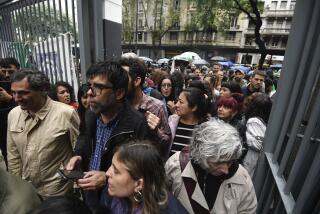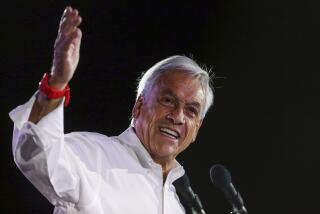Protests, resignations, a flu outbreak: Tough times for Peruâs leader

LIMA, Peru -- Nobody said it was going to be easy, and it rarely is for Peruâs presidents. But Ollanta Humala, who recently completed his second year in office, is facing an unusual array of challenges, including protests, cabinet resignations and to top it off, an outbreak of a deadly flu virus.
The combination, particularly ongoing protests against mining projects, have caused Humalaâs popularity to plummet and weakened his political agenda. Humala, a former army officer, had counted on taxes and royalties from the stalled projects to fund social programs.
On Wednesday, 8,500 doctors in the public health system joined a 20-day national health workersâ strike on the same day that the Health Ministry announced there have been 44 deaths among the 700 confirmed cases of the AH1N1 flu virus. Officials said those at greatest risk from the doctorsâ walkout are the poor.
Humalaâs state-of-the-union address July 28, which is also Peruâs independence day, was overshadowed by major protests that weekend in the capital, Lima, against perceived government ineptitude and the practice of doling out political favors in the form of plum appointments, including to the central bank. Although smaller than the anti-government protests that swept Brazil earlier this year, they were believed to be some of the largest seen in Peru.
âWe need to strengthen democracy and its institutions,â Humala acknowledged in his speech, according to Reuters news agency. âWe have made progress, but there is still some housekeeping to do.â
In July, public workers brought the Peruvian government bureaucracy to a standstill by demonstrating across the country for better salaries and labor reform.
According to the Peruvian public defenderâs office, there have been at least 223 protests or âconflictsâ this year, many of them over environmental concerns to do with new or expanded mining projects, an industry that for numerous Peruvians has lost its glitter. Such protests often include road blockades.
Humalaâs public approval rating has dropped 15 points since December to 33%, the lowest level of his term.
Although Peru has had one of the fastest growing economies in Latin America, not enough Peruvians are feeling the benefits, said political scientist Carlos Melendez.
âDespite 6% average growth during the last decade, there are still social issues pending, such as reforms in education and health, which combined with high crime and corruption, the two most important issues for Peruvians, all amount to a risk factor for Humalaâs government,â Melendez said.
The effects of deteriorating security were illustrated Tuesday when the road building consortium Vial Quinua announced it was abandoning a major highway project in the southern Ayacucho region because of extortion threats by the Sendero Luminoso leftist rebel group.
In addition to mining, Peruvians are deeply divided over the exploitation of the countryâs abundant oil and natural gas resources.
On July 22, Culture Minister Luis Peirano and Vice Minister Pablo Vilga resigned in protest after the government gave the green light for an environmental impact study to pave the way for the expansion of the Camisea natural gas field in Peruâs Amazon basin. The project apparently will proceed despite protests by indigenous communities, whose support was key to Humala winning the presidency.
Humalaâs public image was not helped by the July 15 arrest of ex-congresswoman and supporter Nancy Obregon on drug trafficking and terrorism charges.
ALSO:
Mexican President Pena Nieto postpones landmark Pemex bill
Venezuelaâs supreme court dismisses presidential election lawsuit
Nixed Putin-Obama summit not really about Snowden, analysts say
Special correspondents Leon reported from Lima and Kraul from Bogota, Colombia.
More to Read
Sign up for Essential California
The most important California stories and recommendations in your inbox every morning.
You may occasionally receive promotional content from the Los Angeles Times.










